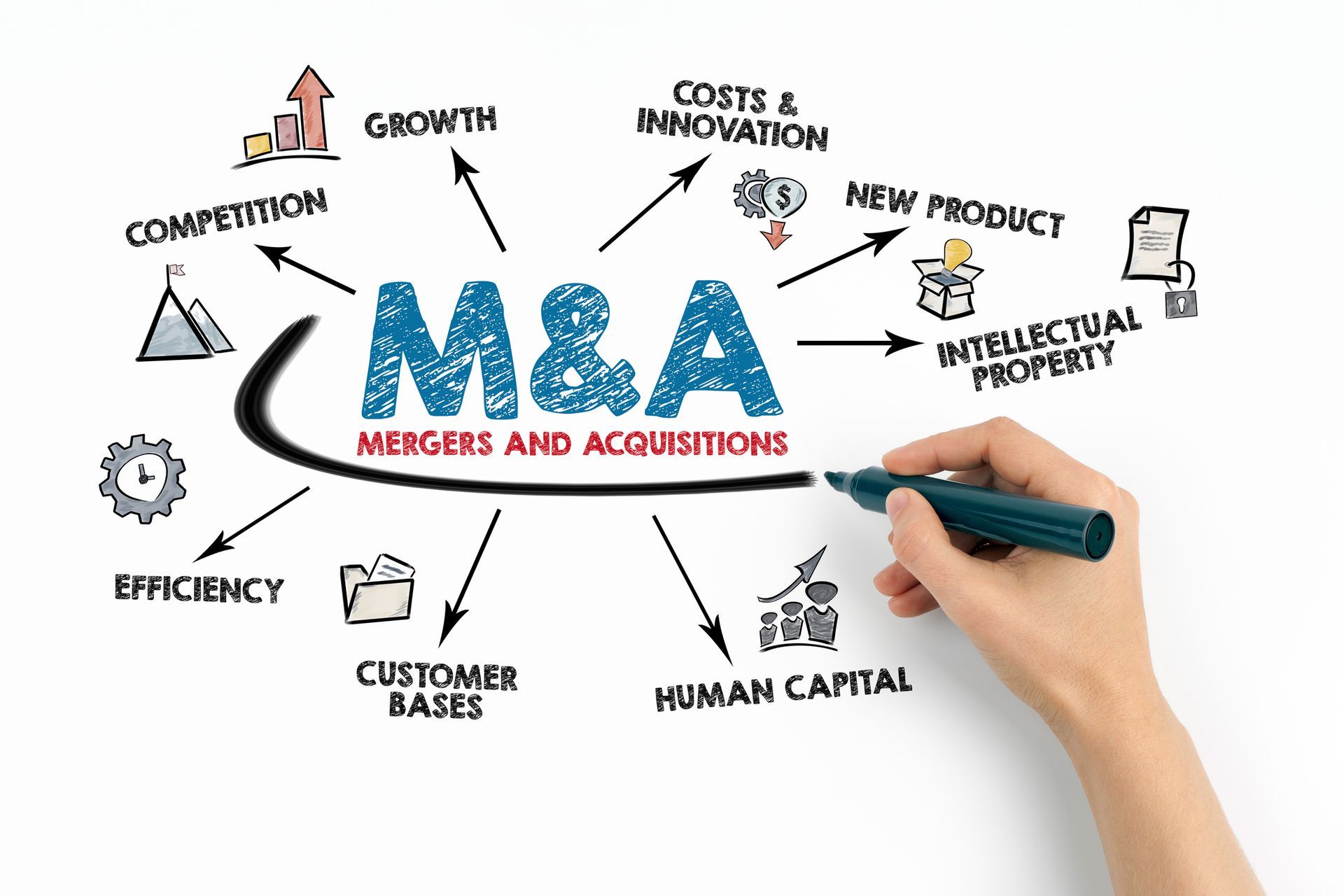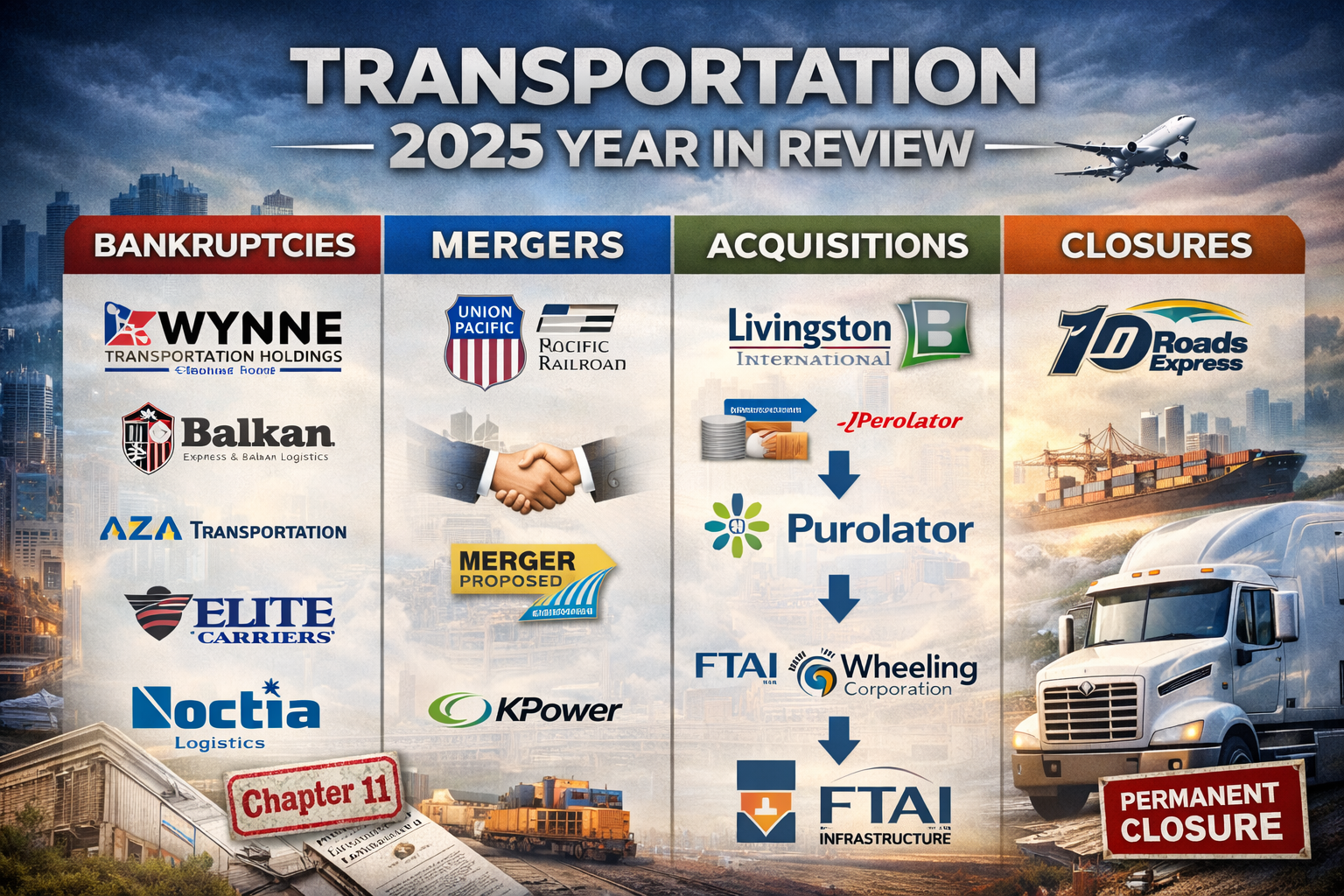The Top 10 Motor Carrier Acquisition Risks: What Every Buyer Should Know
Share this Article:

In the fast-paced transportation industry, mergers and acquisitions (M&A) are common strategies for scaling operations, expanding service territories, and gaining a competitive edge. However, acquiring a motor carrier isn’t just about buying trucks and contracts—it’s about inheriting liabilities, compliance risks, and cultural dynamics that can either fuel growth or trigger setbacks.
Whether you’re a private equity firm eyeing market expansion or a carrier seeking to bolster capacity, here are the top 10 acquisition risks to evaluate when buying a motor carrier.
1. Safety and Compliance Record
A carrier’s Federal Motor Carrier Safety Administration (FMCSA) record is a major liability indicator. Poor CSA scores, out-of-service rates, or unresolved violations may lead to heightened audit scrutiny, DOT penalties, or suspension of operating authority.
Tip: Conduct a deep dive into FMCSA data and Safety Measurement System (SMS) scores before closing.
2. Unresolved Tax Liabilities
Motor carriers operate across multiple jurisdictions, creating complex fuel, income, and payroll tax obligations. Acquiring a carrier with unpaid IFTA taxes, fuel excise taxes, or employment tax debts can lead to unexpected penalties and liens.
Tip: Include detailed tax due diligence—especially around IFTA, IRP, and IRS compliance.
3. Unfavorable Contracts and Leases
Long-term equipment leases, customer contracts, or owner-operator agreements may contain clauses that lock in unfavorable terms or restrict exit options. Some may even contain anti-assignment clauses that hinder post-acquisition transition.
Tip: Review all contracts for survivability, assignment clauses, and cost liabilities.
4. Labor and Independent Contractor Risks
Misclassification of drivers as independent contractors can expose buyers to wage claims, employment taxes, and legal action. Labor disputes, union contracts, or open workers' compensation claims further complicate transitions.
Tip: Examine HR practices, driver agreements, and any pending or historical disputes.
5. Insurance and Claims History
The carrier’s loss run reports, insurance coverage levels, and litigation history will shape future premiums and liabilities. A poor claims history can indicate operational risks and raise red flags with underwriters.
Tip: Obtain at least five years of insurance claims data and confirm current policy exclusions.
6. Environmental and Equipment Liabilities
Outdated equipment, poor EPA compliance, or maintenance neglect can translate into costly upgrades or fines. Contaminated fuel tanks, illegal emissions, or noncompliant DEF systems are often overlooked.
Tip: Physically inspect equipment and review environmental compliance records.
7. Financial Misrepresentation or Weak Controls
Incomplete or inaccurate financials may hide deteriorating cash flow, over-leveraged assets, or fraudulent billing practices. Poor internal controls can indicate a lack of governance or risk management.
Tip: Use forensic accounting and quality of earnings (QoE) analysis to verify financial integrity.
8. Cultural and Operational Integration Issues
Merging two distinct company cultures—especially in decentralized dispatch environments—can disrupt operations. Poor communication and incompatible technology platforms can create internal resistance and inefficiencies.
Tip: Develop a post-merger integration plan that includes technology, HR, and dispatch alignment.
9. Pending Litigation or Regulatory Action
Open lawsuits, DOT investigations, or prior FMCSA enforcement actions must be disclosed and understood. These can delay licensing, damage reputations, or trigger post-sale compliance burdens.
Tip: Engage legal counsel to uncover active cases and pending regulatory issues.
10. Asset Overvaluation or Phantom Assets
Trucks, trailers, and equipment are often overvalued or inaccurately recorded. “Ghost assets”—equipment no longer in use but still on the books—can inflate valuations and mislead buyers.
Tip: Conduct a physical audit of all assets and compare to the general ledger and titles.
Conclusion
Acquiring a motor carrier is a high-stakes venture that goes far beyond headline financials. A thorough due diligence process—focusing on safety, tax, legal, operational, and cultural factors—can uncover hidden risks and inform smarter negotiations.
At Transportation Tax Consulting LLC, we help buyers evaluate fuel tax liabilities, employment tax exposure, IFTA/IRP risks, and FMCSA compliance to ensure you're making informed acquisition decisions.
Ready to acquire with confidence?
Let our team assist you with tailored tax and compliance due diligence for your next transportation deal.
Share with Us:




